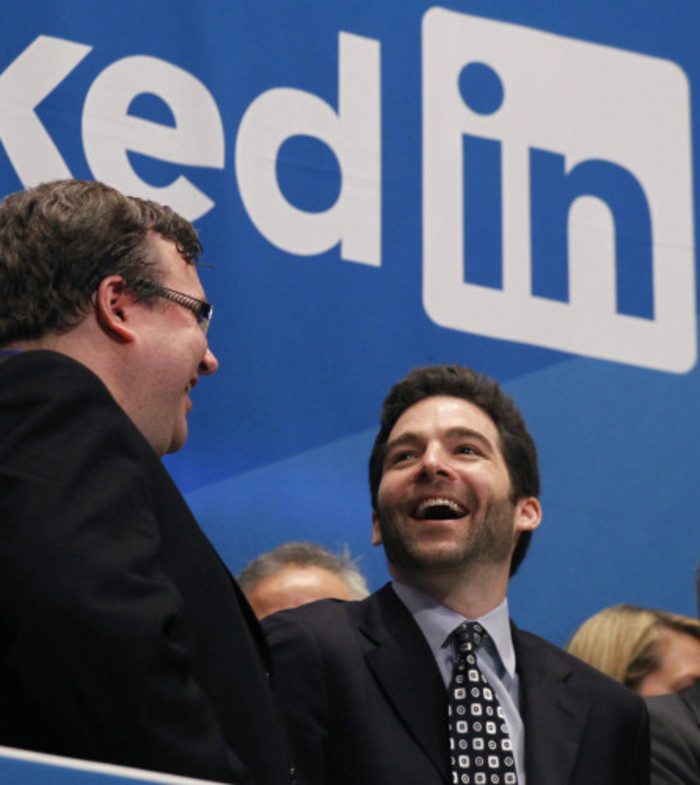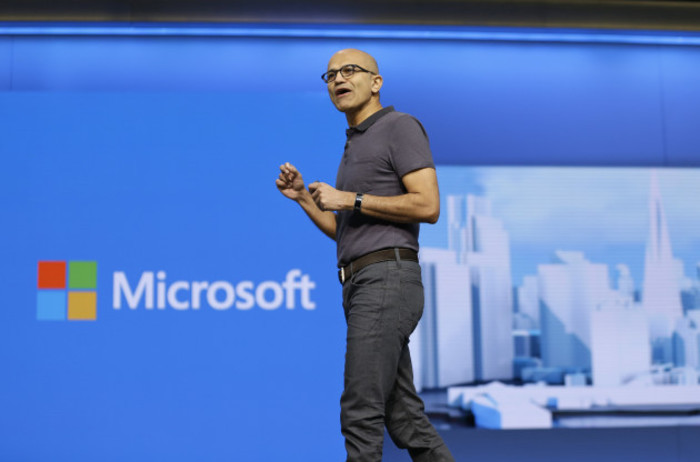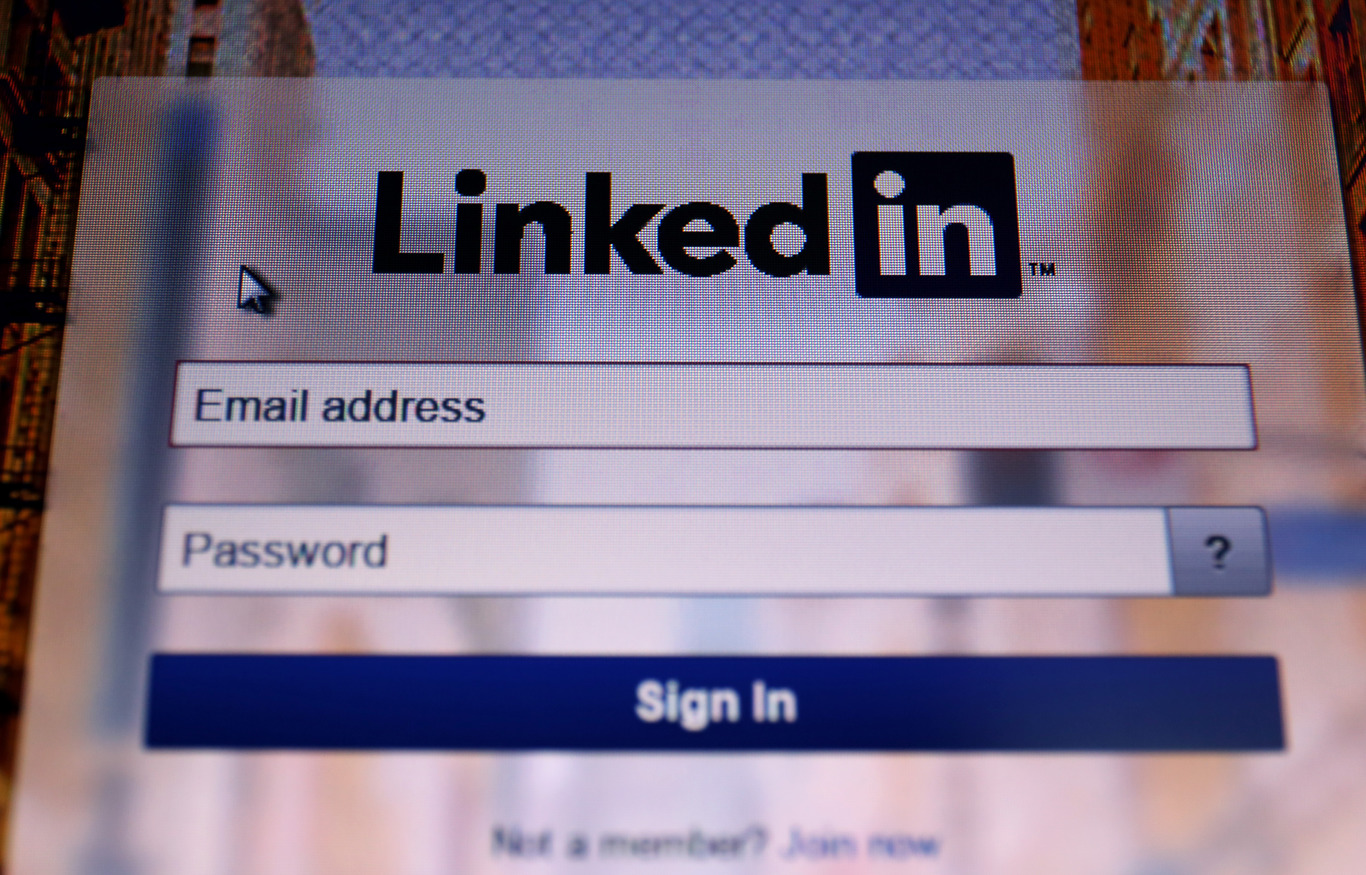Microsoft is buying LinkedIn for a staggering $26 billion
The deal will leave the professional network with its ‘distinctive brand and independence’.
SOFTWARE GIANT MICROSOFT is buying LinkedIn for $26.2 billion in all-cash takeover of the professional networking outfit.
In Microsoft’s biggest deal to date, the two companies announced they had struck a “definitive agreement” that will still leave LinkedIn with its “distinct brand, culture and independence”.
The professional network’s CEO, Jeff Weiner, will also remain in place, however he will now answer to Microsoft boss Satya Nadella.
LinkedIn chairman and co-founder, Reid Hoffman, who is the company’s controlling shareholder, said in a statement that the deal was a “re-founding moment” for the tech firm.
 Hoffman, left, and Weiner in 2011
Hoffman, left, and Weiner in 2011
The buyout represents a near-50% premium on LinkedIn’s closing price from last Friday.
Nadella said that the LinkedIn team had “grown a fantastic business centred on connecting the world’s professionals”.
Together the two companies could “accelerate the growth” of the network, as well as Microsoft’s own products, to “empower every person and organisation on the planet”, he added.
Microsoft plans to mainly use new debt to pay for the deal, the size of which easily surpasses the $8.5 billion it paid for Skype in 2011 or the $7.2 billion it shelled out for Nokia’s mobile phone unit in 2013.
 Nadella
Nadella
Ups and downs
LinkedIn, which currently employs about 800 people in Ireland, was launched in 2003 and now has more than 430 million users worldwide, although only around one-quarter of that total was active each month, according to the site’s latest figures.
Its revenue was up 35% year-on-year in the latest quarter, however it still delivered a net loss of $46 million.
Earlier this year its share price was savaged, losing more than 40% in a day and slicing its market value to around $15 billion, after it announced a revenue downgrade. It has since recovered about 30% in value, however it’s still worth less than half the peak figure of early 2015.
Meanwhile under Nadella, Microsoft has been repositioning itself as a services company rather than a pure software provider. It has bought a string of productivity apps, while simultaneously shedding staff from the remnants of the Nokia smartphone operation.
The deal is seen as a means for Microsoft to give it better advertising reach for its software, while also offering it the scope to integrate the professional network with its existing products that have scope for collaboration.
Both companies’ boards have cleared the deal, however it will still need to be approved by shareholders and regulators.






